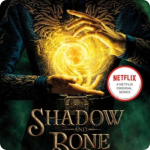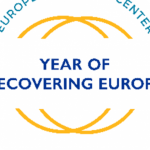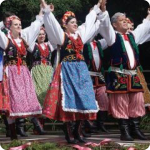Past Events

- Sabrina Robinson
- Zoom
Global Issues Through Literature (GILS)
Fall and Spring 2021-22: Imagining Other Worlds: Globalizing Science Fiction and Fantasy
This reading group for K-12 educators explores literary texts from a global perspective. Content specialists present the work and its context, and participants brainstorm innovative pedagogical practices for incorporating the text and its themes into the curriculum. Sessions this year will take place virtually on Thursday evenings from 5-8 PM (EST). Books and three Act 48 credit hours are provided.
Register for the reading groups here - https://www.ucis.pitt.edu/global/gils
Discussion led by Professor Sabrina Robinson, Instructor in Slavic Languages & Literatures, University of Pittsburgh
Co-sponsored by the Center for Russian, East European and Eurasian Studies
Contact Maja Konitzer with questions at majab@pitt.edu

- Zoom
Join us for a talk on Jewish Romanian history and collective memory formation in Romanian film with director Oana Giurgiu and historians Cristina A. Bejan and Adrian Cioflâncă. The session will be moderated by Libby Langsner.
Register HERE for the event:
https://us02web.zoom.us/meeting/register/tZUuf-CoqzsjGtZsT4HXNyHtkZU26th...
Click Here to watch the films that will inform our discussion ( Radu Jude's Dead Nation and The Exist of the Trains, Oana Giurgiu's Occasional Spies) November 12-21st:
https://watch.eventive.org/rffs2021
Event organized in partnership with ARCHER - Romanian American Coalition for Human and Equal Rights.
About the Event:
The issues of the Holocaust, the Romanian-Jewish experience and identity, still remain relevant, and often controversial, topics in contemporary Romanian culture. Film has become a vehicle for these taboo subjects to be explored and for the multi-faceted history of the Romanian Jewish experience, especially during World War Two, to come to light.
Collective memory is defined as how groups remember their past, but the question of who is considered the “group,” and which memories are passed down and how, is more malleable than one might think.
Directors Radu Jude and Oana Girgiu both seek to challenge and expand what we know about Romanian history, and, in essence, who gets to be Romanian.
About Our Guests:
Oana Giurgiu:
Oana Giurgiu is a law and journalism graduate, having directed television documentaries before working in film on Cristi Puiu’s 2005 Cannes Un certain regard winner, “The Death of Mr Lăzărescu” and then on Kornél Mundruczó’s 2008 Cannes FIPRESCI winner, “Delta”.
She produced three of Tudor Giurgiu’s films: “Love Sick” (Berlinale 2006, Panorama); the 2012 Romanian box office hit “Of Snails and Men” (Warsaw IFF); and “Why Me?” (Berlinale 2015, Panorama). She also produced Peter Strickland’s “Katalin Varga” (Berlinale 2009, Silver Bear, European Discovery of the year at European Film Academy Awards) and Cristi Puiu’s “Sieranevada” (Cannes 2016). Oana co-produced Hungarian titles “Eden”, dir. Agnes Kocsis (Rotterdam IFF 2020) and “Spiral” (in post-production), dir. Cecilia Felmeri and the Slovak “The Servants”, dir. Ivan Ostrochovsky (Berlinale 2020, Encounters), and the Turkish “Before two Dawns” (in post-production), dir. Selman Nacar (working progress awards at Meetings on the bridge, Istanbul IFF 2020, and Antalia 2019), produced the greatest Romanian box office hit in recent years, “Moromete Family: On the Edge of Time”, which received ten Gopo Awards in 2019.
After working on several television documentary productions, she made her directorial debut with a feature-length historical documentary, “Aliyah DaDa”, screened in Astra Sibiu, Jerusalem Jewish IFF, alongside other Jewish festivals and screenings worldwide, and recognized as Best Romanian Documentary at the Gopo Awards 2015, now she just launched her new documentary “Occasional Spies”, Special mention of the Jury at Astra Film Festival 2021.
Adrian Cioflâncă:
Adrian Cioflâncă is co-director with Radu Jude of the documentary The Exit of the Trains (2020). He is a historian, director of the „Wilhelm Filderman” Center for the Study of Jewish History in Romania and a member of the Collegium of the National Council for the Study of the Securitate Archives. He is also a researcher with the "A. D. Xenopol” Institute of History (belonging to the Romanian Academy). He was a member of the International Commission on the Holocaust in Romania (2003-2004) and expert in The Presidential Commission for the Analysis of the Communist Dictatorship in Romania (2006), and a co-author of the Final Reports of the two commissions. Since 2005, he is a member of the Romanian Delegation to the International Holocaust Remembrance Alliance. A “Tziporah Wiesel” Fellow of the United States Holocaust Memorial Museum in Washington (2009), between 2010-2012, he was a department director in The Institute for the Investigation of the Communist Crimes and the Memory of the Romanian Exile. Adrian Cioflâncă edited, in collaboration, eight volumes; the last one: “Discurs și violență antisemită în România modern” (Discourse and Antisemitic Violence in Modern Romania), Hasefer, București, 2020. He also authored studies in fields like the history of the Holocaust, history of communism, political violence, cultural history, the theory of history. Consultant for several movies and theatrical plays.
Cristina Bejan:
Cristina A. Bejan is an award-winning Romanian-American historian, theatre artist, and poet. A Rhodes and Fulbright scholar, she currently teaches history at Metropolitan State University of Denver. Bejan received her Masters and DPhil (PhD) in Modern History from the University of Oxford and her BA in Philosophy (Honors) from Northwestern. A playwright and spoken word poet (Lady Godiva), her creative work has appeared in the US, UK, Romania, and Vanuatu. Bejan runs the arts group Bucharest Inside the Beltway. She has published two books (history and poetry), a play in the anthology "Voices on the Move" (eds. Domnica Radulescu and Roxana Cazan), and 64 articles and the African continent introduction for the US Holocaust Memorial Museum's "Encyclopedia of Camps and Ghettos Vol. 3."
About Our Moderator:
Libby Langsner was the 2020-2021 Jewish Heritage Program Fellow at World Monuments Fund, where she worked with global Jewish communities to help steward their built heritage. She completed her masters in the History of Art focusing on countercultural art from Eastern European and Latin America at the Courtauld Institute of Art in London in 2020. Her MA dissertation focused on the issues of gender and culpability in contemporary Eastern European Holocaust film. Before attending the Courtauld, Libby completed her undergraduate education in art history at Tufts University and worked at multiple art galleries throughout New York City.

- Zoom
The effects of COVID-19 have been felt unevenly across Europe, a trend which continues into the recovery from the pandemic. In this panel, experts will discuss how these inequalities have been felt on an individual level and at the national level in terms of health and educational outcomes and economic impacts.
Panelists:
Holly Jarman, University of Michigan
Julia Lynch, University of Pennsylvania
Martin Myant, European Trade Union Institute
Sylke Schnepf, JRC-European Commission
Moderated by Jae-Jae Spoon, University of Pittsburgh
Audience Participation is encouraged.
#CoE

- Online
Free, Virtual Cultural Celebration: Join us in a week-long celebration and share the virtual Pittsburgh POLISHFEST '21 with your family, friends and neighbors, across the street, across the country or across the world. Celebrate a variety of Polish, Lithuanian and Carpatho-Rusyn traditions, including folk music, folk dance, culinary demonstrations with recipes, historical, religious, and folk-art offerings. These presentations were created to remember something old, discover something new, keeping alive our traditions alive in an ever-changing world.

- Zoom
Join us for a live discussion with actress Ioana Flora (Fragile) and directors Oana Tenter (The Pastor's Women), Ioana Mischie (Fragile) and Oana Giurgiu (Occasional Spies), moderated by Alina Haliliuc.
Register HERE: https://us02web.zoom.us/meeting/register/tZAvcuCtrzgoHN32pxpfrbkWvN-zYM1...
This event centers on Romanian women directors, actresses and scholars, and their reflections on the current state of Romanian film and its future. What kind of stories still need to be told through film, and by whom?
About Our Special Guests:
Oana Giurgiu- director:
Graduate in Journalism and Law, Oana Giurgiu has extensive experience as a producer of television programs, music videos and events as well as organizing Transilvania International Film Festival. She was cinematographer on the documentary “Doina and Nicolo”(1996) and directed TV documentaries as “The spider web” (1997), “About sand”(1998), “Refugee in Romania” (2004), “Me sem baxtalo?...”(2008). In 2004, she was location manager on Cristi Puiu\'s Cannes-award winner “The death of Mr. Lazarescu” and later, produced Tudor Giurgiu\'s feature debut “Love sick” which premiered in Berlinale 2006 and was a box-office success in Romania. Oana was the Romanian production manager on behalf of Libra Film for the Hungarian-German co-production “Delta” by Kornél Mundruczó, Fipresci award at Cannes 2008. In 2008 was the Romanian producer participating in Cannes, at “Producers on the move”- a project of European Film Promotion. She co-produced “Katalin Varga” by Peter Strickland, Silver Bear for Outstanding Artistic Contribution at Berlinale 2009 and Best European Discovery at European Film Academy Awards 2009. Currently as director/producer, she is developing at Archidoc – La femis workshop, the documentary “From Romania to Zion”. Her last projects as executive producer, “The kino caravan” by Titus Muntean, a co-production with Filmkombinat (Germany) was premiered in Pussan 2009 and “Somewhere at Palilula” the debut film of Silviu Purcarete is now in postproduction, while second film of Tudor Giurgiu “Of snails and men” is in pre-production.
Ioana Mischie-director:
Ioana Mischie is a Romanian-born cinematic storyteller (screenwriter/director) and transmedia futurist, awarded for filmmaking, creative writing, interactive concepts and a Fulbright Grantee Alumna of USC School of Cinematic Arts, researching transmedia storytelling as part of her doctoral study.Her cinematic projects as writer/director have traveled to more than 70 festivals worldwide and were developed in international programs. Co-founder and Head of Storyscapes, an NGO focusing transmedia storytelling and expanded narratives initiated in 2012 and since 2015 arts-based research collaborator of CINETic, a recently created Eastern European centre focussing the interaction between neuroscience and groundbreaking audio-visual paths.
Oana Țenter - director:
Oana Tenter is a documentary-maker and graduate student at UC Santa Cruz,
part of the Social Documentation MFA program. She is the recipient of a 2020-2022 Fulbright scholarship. Oana’s film “The Pastor’s Women” - about a Roma Pentecostal community set in her home country Romania - was screened at the UN-backed World Conference on Statelessness in the Hague and by Open City Docs London in 2019. Her work includes collaborations with The Roundhouse, The Young Vic Theatre, The Tab London, VIY. Her writing can be found in The Guardian, The Evening Standard, Internazionale, Scena9, Dispatch.
Ioana Flora- actress:
Ioana Flora debuted in acclaimed Romanian director Cristi Puiu's Stuff and Dough/Marfa si banii, where she starred alongside Dragos Bucur and Alexandru Papadopol. It was the first Romanian picture selected for the Quinzaine des Réalisateurs program at Cannes in 2001 and was credited with starting the New Wave of Romanian cinema. Recently, Ioana played the female lead in The Christmas Gift/Cadoul de Craciun, a short feature that is among the 10 live action shorts shortlisted for the 2020 Academy Awards. Directed by Bogdan Muresanu, the short film also received the Best Short Movie award at the European Film Awards in 2019. She is a critical darling, with both Romanian and international film critics heaping praise and accolades on her for being "an intense and instinctive artist - who always captures nuances with amazing precision and burns on the inside while acting, insofar as she can carry a whole film by herself." Ioana's filmography counts as many as 25 national and international productions, both in cinema and TV, and she was the recipient of one of the most valued distinctions in the international film industry - the Best Actress Award that she won at the Thessaloniki Film Festival in 2008, for Adrian Sitaru's Hooked.
About Our Moderator:
Alina Haliliuc earned her Ph.D. in Rhetoric and Public Advocacy from the University of Iowa. Her scholarship examines public language under conditions of socio-political change, such as post-communist Romania. She reads a variety of cultural forms – from public debates and museums to live performances and film – with a curiosity for how the affective, ethical, and political imagination of people living in post-communism is discursively shaped. More recently, she has turned to ethics and affect as keys to discerning more enduring political imaginaries. In analyses of Romanian New Wave films “The Death of Mr. Lăzărescu” and “4 Months, 3 Weeks, and 2 Days,” (in The Journal of Popular Culture and Text and Performance Quarterly) as well as in her field-based rhetorical criticism of nationalist performer Dan Puric (in Text + Field: Innovations in Rhetorical Method), Dr. Haliliuc examines how emotional and linguistic habits from the communist past are squared with ethical commitments in the present, with political consequences more difficult to map. She is currently Associate Professor at Denison University.
About the films:
Occasional Spies: Hailing from Romania, Yugoslavia, Slovakia and Austria, the subjects of Occasional Spies are young Jews who were recruited to Palestine during WWII to help the local resistance repel German invaders. Using the subjects' own voices to highlight their little-known acts of heroism, combined with both archival images and recreations from their retellings, the film amplifies these young Jewish fighters' fears and hopes as they navigated the increasingly hostile and violent Europe that they used to call home.
The Pastor's Women: The vibrant world of Pentacostal Roma in Romania is seldom seen outside that community. This short documentary explores the life of a pastor’s wife as she works tirelessly for her family and to improve her Roma community. She supports them all as a pillar of courage, love and hope. We see, too, this life from her six daughters’ perspectives.
Fragile: In Fragile, Ioana Mischie’s creative documentary, actress Ioana Flora gives voice to several Romanian women who have suffered abuse and trauma. Written by Flora in collaboration with Rucsandra Pop, the script compiles real stories under a common theme: “Women are not made to be broken.” Flora's inhabitation of each of the women's stories is performed with empathy, respect, and understanding.
Click Here to watch the films that will be part of the discussion: https://watch.eventive.org/rffs2021

- 501 Cathedral of Learning
A Symposium in Honor of Dr. Irina Livezeanu This unique event brings together former students, colleagues, and associates of Irina Livezeanu’s, many of them specialists in the history, art, and culture of Romanian Jews or Romanian fascism, to discuss Jewish lives, creativity, and persecution during the Holocaust, and the memory of these earlier times. Held to celebrate Irina Livezeanu's retirement from the University of Pittsburgh, "Image and Memory: Jews, Antisemitism, and the Holocaust in Romania" deals with major themes that have occupied her writing and teaching over several decades. The event involves four roundtables that are open to the public. The first roundtable uses images and interviews to investigate Jewish lives before and after the Holocaust; the second—artwork and writings by Jewish members of Romania's twentieth century avant-garde movements; the third—propaganda photographs of Romanian fascists and the Holocaust; the fourth is a screening and discussion of director Radu Jude's 2018 feature film, "I do not care if we go down in history as barbarians," which deals with how contemporary Romanians remember the role of Romania’s Nazi-allied government in World War II. Announced by European Studies Center.

- Olga Baranova
Olga Baranova, Senior Director of the Moscow Community Centre for LGBT+ Initiatives, will speak on the challenges LGBT+ communities face in Russia and the North Caucasus while exploring how Moscow is a conduit for refugees seeking safety and asylum and also a place under increased state surveillance. Now based in New York, Ms. Baranova is a Russian human rights activist. Her work has been featured in the 2020 award-winning documentary Welcome to Chechnya! Inside the Russian Republic's Deadly War on Gays directed by the American filmmaker David France.

- Catriona Kelly, Oxford University
- Zoom
The 1960s and 1970s were a boon for Soviet film. After decades of fits and starts film production. Moviegoers flocked to the theaters. True, Soviet filmmakers leapt over hurdles to make art in an authoritarian society. But while the Brezhnev era of Soviet filmmaking is often depicted as a period of great repression, the films out of the prestigious Lenfilm studio were far more imaginative than assumed. How did a new generation of Soviet filmmakers reconcile contradictory demands to make sophisticated and highly original movies? This live interview with Catriona Kelly will discuss the history of the Lenfilm Studio and its striking oeuvre in the 1970s. Register via Zoom: https://pitt.zoom.us/webinar/register/WN_U_43USetSvewu9iugQ0B7Q

- Prof. Holger A. Klein, Lisa and Bernard Selz Professor of Medieval Art History Columbia University
- Posvar 4130
The Creating Europe Speaker Series is a two-year project funded by a Jean Monnet Project grant from the European Commission and part of a larger initiative to reimagine European Studies at the University of Pittsburgh. The series will explore ideas of Europe from Late Antiquity to the contemporary period and consider ways in which processes of “integration” and “disintegration” have been at work in Europe for much of its history.
In this first session, Professor Klein will join Pitt Professors Shirin Fozi (History of Art and Architecture) and James Picket (History) for a discussion of his work and how it informs our understanding of Europe in the Medieval period.
Place: Posvar 4130 – masks required, University of Pittsburgh campus community members only
*For those who cannot attend in person, the event will be livestreamed.

- Dr. Emily Delp
- Zoom Discussion
Street Medicine and Health Organization
November 9th, 6pm-7pm, Virtual Format
Emily Delp, M.D.
Family Medicine Resident Physician at Medstar Health/Georgetown-Washington Hospital Center, Co-Creator of Street Health DC, Inc.
Dr. Emily Delp, a graduate of the University of Pittsburgh, will discuss the creation of her nonprofit organization providing health resources to persons experiencing unsheltered homelessness in DC. She will also discuss her experiences of serving refugee populations, providing street medicine, and addressing health policy initiatives.
To Register:
https://pitt.zoom.us/meeting/register/tJcucuquqz0pHNa_VVMC5qIwqm3kUG9zF83C
Sponsored by: Asian Studies Center, Center for African Studies, Center for Latin American Studies, Center for Russian, East European, & Eurasian Studies, European Studies Center, and Global Studies Center



- Virtual
This film symposium will contribute to a broader understanding of sexual normativity in Russia, whether our working understanding of that category operates with a notion of “queer” as endlessly fluid or whether it is identified with fixed boundaries across historical breakpoints. Join us for the screening of two films and follow-up discussions with filmmakers and scholars on three questions. We will explore how our understanding of queer theory is rooted in definitions within contemporary US culture, ask whether queerness lends itself to a transregional definition, and consider what Russian queer cinema can reveal about unacknowledged Anglo-American assumptions.
Saturday, 6 November, 1 PM EST
Come On, Scumbags (Kazakhstan, 2013, dir. Madina Mustafina)
Introducer:
Madina Mustafina, Director and Cinematographer
Discussants:
Frank G. Karioris, Faculty, The Branson School
Nick Davis, Associate Professor of English, Northwestern University

- Virtual
This film symposium will contribute to a broader understanding of sexual normativity in Russia, whether our working understanding of that category operates with a notion of “queer” as endlessly fluid or whether it is identified with fixed boundaries across historical breakpoints. Join us for the screening of two films and follow-up discussions with filmmakers and scholars on three questions. We will explore how our understanding of queer theory is rooted in definitions within contemporary US culture, ask whether queerness lends itself to a transregional definition, and consider what Russian queer cinema can reveal about unacknowledged Anglo-American assumptions.
Friday, 5 November, 1 PM EST
The Man Who Surprised Everyone (Russia, 2018, dir. Natasha Merkulova and Aleksei Chupov)
Introducer:
Stasia Korotkova, Founder, Queer Screen
Discussants:
Todd W. Reeser, Chair, Department of French and Italian, University of Pittsburgh
Dan Healey, Professor of Modern Russian History, University of Oxford
- ‹ previous
- 37 of 46
- next ›

